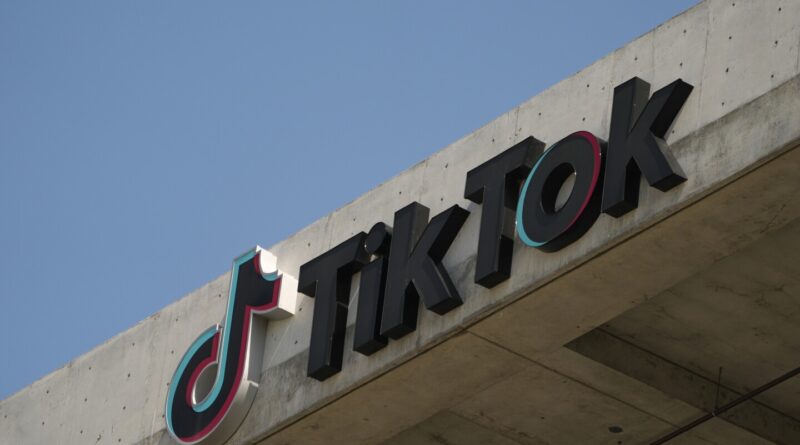States are suing TikTok, saying its platform is addictive and harmful to children’s mental health
More than a dozen states and the District of Columbia filed lawsuits against TikTok on Tuesday, alleging that the short-form video app harms the mental health of young people by designing its platform to be addictive. children.
The cases are from a national search on TikTokwhich was launched in March 2022 by a partnership of two attorneys from many states, including New York, California, Kentucky and New Jersey. All complaints were filed in national courts.
At the heart of each case is TikTok’s algorithm, which enhances what users see on the platform by filling the main “For You” feed of the app with content tailored to people’s interests. Cases also highlight design features that they say make kids addicted to the platform, such as the ability to scroll endlessly through content, push notifications that come with built-in “buzzes” and filters face that creates an unattainable appearance for users.
In its filings, the District of Columbia called the algorithm “dopamine-inducing,” and said it was intentionally designed to be addictive so the company could trap more young users into using it excessively and keep them in the loop. its device many hours. TikTok is doing this despite knowing that this behavior will lead to “serious mental and physical harm,” such as anxiety, depression, body dysmorphia and other long-lasting problems, to said the complaint.
“There’s merit in the fact that it’s engaging young people on its platform,” District of Columbia Attorney General Brian Schwalb said in an interview.
“We strongly disagree with these allegations, many of which we believe are inaccurate and misleading. We are proud of and remain committed to the work we have done to protect young people, and we will continue to improve and improve our product,” said TikTok spokesperson Alex Haurek in response to the allegations. “We tried to work with lawyers for more than two years, and it is very disappointing that they have taken this step instead of working with us to resolve the industry’s problems.”
The social media firm does not allow children under the age of 13 to sign up for its core service and blocks some content for anyone under the age of 18. But Washington and several other states have said in their filing that children can easily circumvent those restrictions, allowing them to get the service. adults use despite the company’s claims that its platform is safe for children.
“TikTok says it’s safe for young people, but that’s not true. In New York and across the country, young people have died or been injured doing dangerous TikTok challenges and many others feel sad, worried and depressed because of the addictive features of TikTok,” New York Attorney General Letitia James said in a statement.
Their case also focuses on other aspects of the company’s business.
The district accuses TikTok of operating as an “unlicensed economy” by allowing people to buy TikTok coins – the currency available within the platform – and sending “Gifts” to people who stream on TikTok LIVE they can withdraw it with real money. TikTok takes a 50% commission on these financial transactions but has not been registered as a money transfer with the US Treasury Department or state authorities, according to the complaint.
Officials say young people are regularly targeted for sexually explicit content on TikTok’s LIVE streaming service, which has allowed the app to act as a “virtual strip club” without age restrictions. They say reducing the company from the financial system to allow it to profit by exploitation.
The 14 attorneys said the purpose of their lawsuits is to prevent TikTok from using these features, impose financial penalties for their illegal practices and collect damages for injured users.
Many countries have filed lawsuits against TikTok and other technology companies in the past few years as numbers grow against social media platforms and their growing influence on young people’s lives. In some cases, the challenges are linked in the same way that countries were organized against the tobacco and pharmaceutical industries.
Last week, the Attorney General of Texas Ken Paxton sued TikTok, saying the company is sharing and selling children’s personal information in violation of a new state law that prohibits these practices. TikTok, which disputes the charges, is also fighting a similar lawsuit involving data brought up in August by the Justice Department.
Several Republican-led states, such as Nebraska, Kansas, New Hampshire, Kansas, Iowa and Arkansas, have also sued the company, others are unsuccessfulwith allegations that it damages the mental health of children, exposes them to “inappropriate” material or allows young people to be sexually abused on its platform. Arkansas has brought a legal challenge against YouTube, along with Meta Platform, which owns Facebook and Instagram and has been sued by many states for its claims of harming the mental health of young people. New York City and other public school districts have also brought their own lawsuits.
TikTok, in particular, is facing some challenges at the national level. Under federal law that went into effect earlier this year, TikTok could be banned from the US by mid-January if its China-based parent company ByteDance does not sell the platform by then.
Both TikTok and ByteDance are challenging the law in a Washington appeals court. A panel of three judges heard oral arguments in a trial last month and is expected to issue a ruling, which could be appealed to the United States Supreme Court.
#States #suing #TikTok #platform #addictive #harmful #childrens #mental #health
